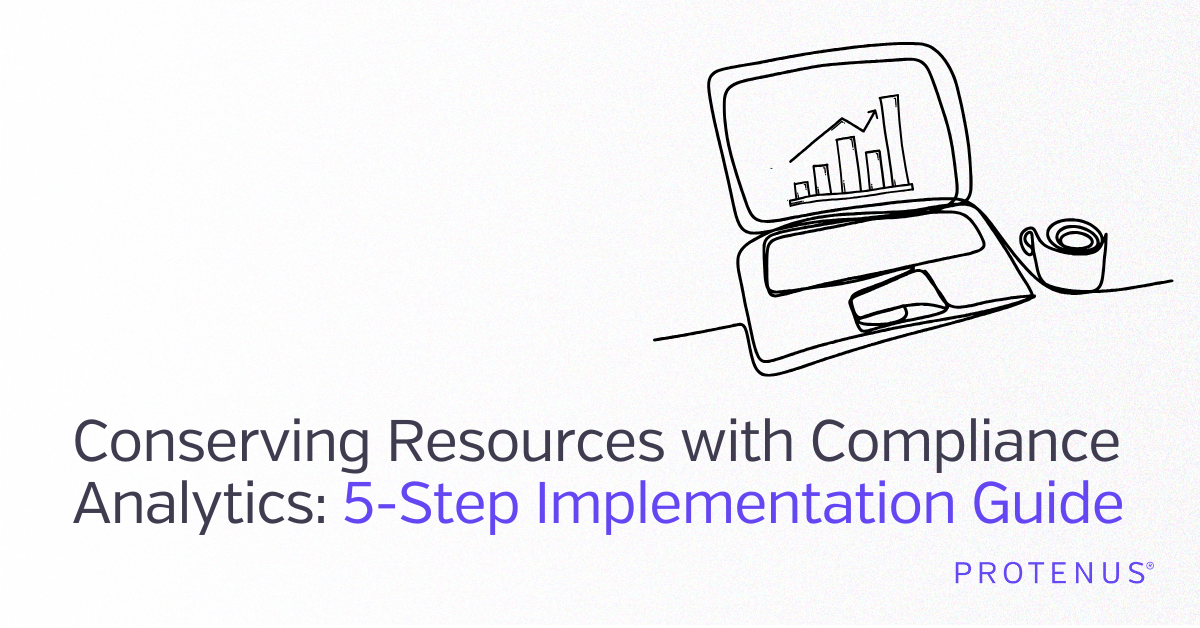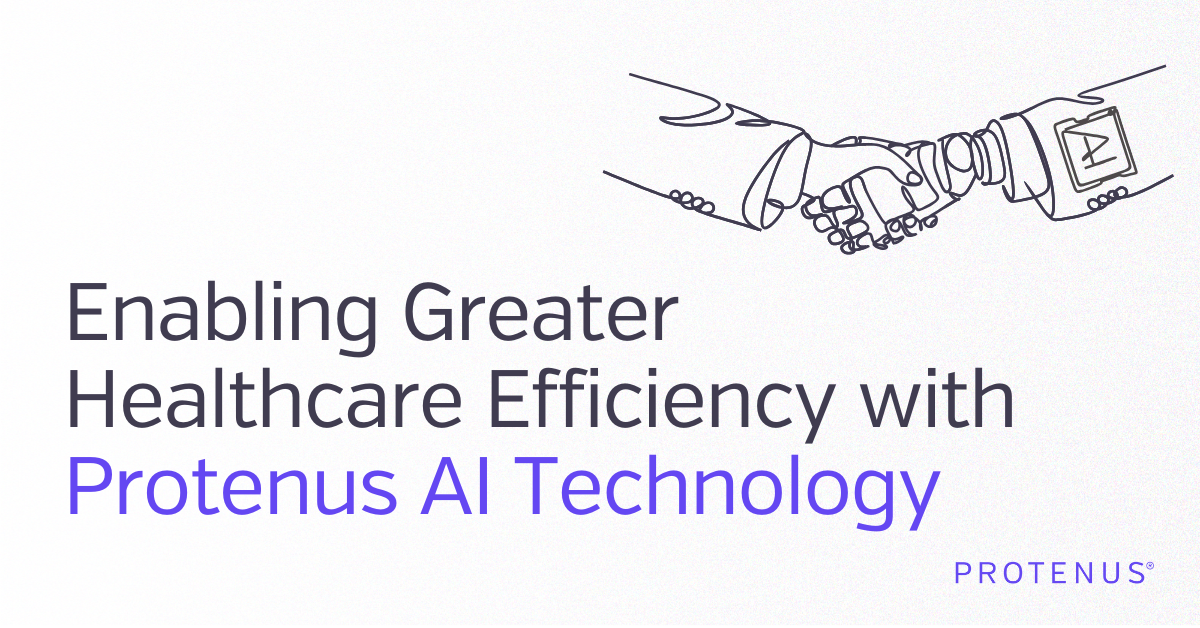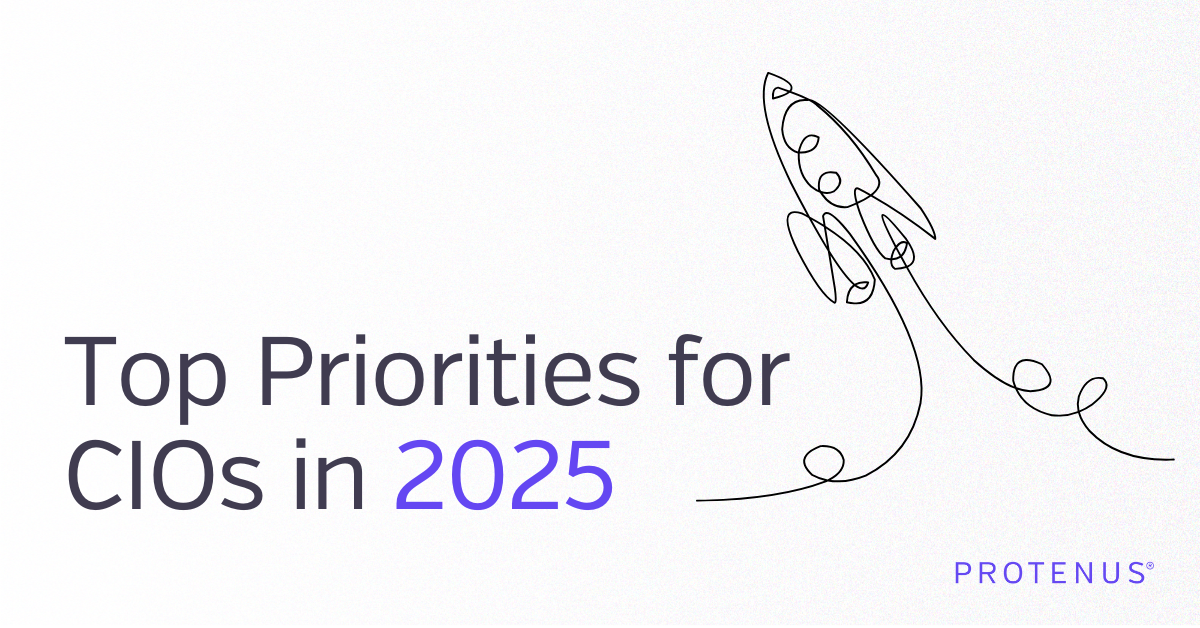Share this

What’s a Cyborg Got to Do With It? Artificial Intelligence and Partnerships are the Core of Protenus
by Matt Ford, Senior Machine Learning Engineer, Protenus on April 20, 2020
Artificial intelligence is an incredibly popular topic these days as it is becoming more prevalent in our daily lives: from letting an autonomous car determine if a person or a plastic bag is in front of it, to reading a chest radiograph to detect cancer or other disease, to determining if a dangerous leak is occurring on an oil or gas pipeline.
But, what exactly is AI? It certainly is artificial, but it is no way intelligent--you can fake out an AI system trained to determine what kind of flower is in a picture just by showing it an image of a chicken. Be ready to hear--with a high degree of confidence--that what you are seeing is a tulip.
At its most basic, artificial intelligence, like many other areas of computational engineering, is math. In his pioneering work on the scientific method, The Assayer, Galileo Galilei wrote, "[The universe] is written in the language of mathematics." To understand the universe, he argued, one had to understand mathematics. In today's AI systems, developers, scientists, and engineers stand on the shoulders of many mathematical giants, with work showing that a large set of complex mathematical equations can be harnessed to appear to solve problems that require what appears to be intellect.
As one of those engineers, I know for sure that AI relies on human intelligence, decision making, and years of study and expertise. The Protenus platform uses artificial intelligence to comb through millions of interactions between patients and hospital staff as captured via electronic health records (EHR) every day to determine how suspicious they look to our mathematical model.
The Protenus AI team consists of world-class developers and data scientists, all drawn from backgrounds outside of healthcare--molecular thermodynamics, high-energy astrophysics, evolutionary biology, systems neuroscience, particle physics, and software engineering. To build our system, we rely on insights and input from experts in healthcare compliance and patient privacy. We continue to rely on the expertise of our customers to continually improve the nature of the AI at the heart of our healthcare compliance analytics platform.
Our solution does not exist in a vacuum: it is what can be dubbed a “cyborg system,” one that augments human ability rather than replacing it. A chess AI that is used alongside a human chess player to take on an opponent is a cyborg system, for example. An image detection/classification AI used in an autonomous car is not.
Like a cyborg system, Protenus’ platform augments the ability of experts in healthcare compliance to examine far more data than they ever could on their own.
Our system can examine hundreds of millions of accesses per client each month and help determine which of these are most suspicious. Suspicious accesses are sent as natural-language reports to our clients, with explanations about why clients might want to consider investigating an incident. With this approach, customers can avoid spending resources on false positives, and focus on true threats to their organization.
For compliance professionals to handle a nominal volume of 200,000,000 accesses per month, they would need to examine and assess around 77 access per second every second of every day--something unfathomable. With Protenus AI, customers review a reasonable number of cases that are actually likely to merit further investigation.
The Decision Makers
We can use the platform to determine suspiciousness, but it cannot be used to explain or determine human behavior. It takes human expertise to follow up on cases that our platform identifies and determine whether they were actually policy violations. Although AI can spot irregular behavior, privacy officers typically follow up by interviewing reported individuals, trying to fully understand the nature of their interaction with a particular EMR. Our understanding of any interaction is limited to what is in the EMR logs, but extenuating circumstances may exist, hence the need for expert, human follow up.
The information from their investigation is fed back into the platform, improving our AI system.
This client feedback makes our system one of the industry leading uses of artificial intelligence in healthcare compliance. We rely on human expertise and experience to improve how well our AI is able to work.
Protenus Supports Our Customers
While we are in uncharted territory these days with a pandemic raging around us, our Protenus team understands that individuals in healthcare are being asked to wear a variety of hats and tackle roles that aren’t typical for them. This is a time when having an AI partner can offer support and some peace of mind. Protenus can continue to show customers the most suspicious cases which helps prioritize limited resources while maintaining their robust compliance programs.
Interested in reading more about AI or how the Protenus platform works? Check out the other blogs my colleagues have written, we are always coming out with new resources! In the meantime, feel free to leave a comment below with your questions or feedback.
Share this
- December 1, 2024 (3)
- November 1, 2024 (1)
- October 1, 2024 (2)
- September 1, 2024 (1)
- August 1, 2024 (1)
- July 1, 2024 (1)
- June 1, 2024 (1)
- May 1, 2024 (1)
- March 1, 2024 (2)
- February 1, 2024 (3)
- January 1, 2024 (1)
- December 1, 2023 (1)
- November 1, 2023 (3)
- October 1, 2023 (3)
- September 1, 2023 (1)
- August 1, 2023 (1)
- July 1, 2023 (2)
- April 1, 2023 (1)
- March 1, 2023 (1)
- February 1, 2023 (1)
- December 1, 2022 (3)
- November 1, 2022 (3)
- October 1, 2022 (1)
- September 1, 2022 (1)
- August 1, 2022 (2)
- June 1, 2022 (4)
- May 1, 2022 (5)
- April 1, 2022 (1)
- March 1, 2022 (4)
- February 1, 2022 (3)
- November 1, 2021 (2)
- October 1, 2021 (3)
- September 1, 2021 (3)
- August 1, 2021 (3)
- July 1, 2021 (4)
- June 1, 2021 (2)
- May 1, 2021 (2)
- April 1, 2021 (2)
- March 1, 2021 (5)
- February 1, 2021 (1)
- January 1, 2021 (1)
- December 1, 2020 (1)
- November 1, 2020 (2)
- October 1, 2020 (2)
- September 1, 2020 (3)
- August 1, 2020 (2)
- July 1, 2020 (2)
- June 1, 2020 (6)
- May 1, 2020 (3)
- April 1, 2020 (4)
- March 1, 2020 (2)
- February 1, 2020 (4)
- January 1, 2020 (2)
- December 1, 2019 (2)
- November 1, 2019 (1)
- October 1, 2019 (1)
- September 1, 2019 (1)
- August 1, 2019 (1)
- June 1, 2019 (1)
- April 1, 2019 (1)
- February 1, 2019 (1)
- January 1, 2019 (1)
- December 1, 2018 (2)
- November 1, 2018 (2)
- October 1, 2018 (2)
- September 1, 2018 (3)
- August 1, 2018 (1)
- July 1, 2018 (2)
- June 1, 2018 (2)
- May 1, 2018 (1)
- April 1, 2018 (1)
- March 1, 2018 (2)
- February 1, 2018 (6)
- January 1, 2018 (2)
- September 1, 2017 (2)
- August 1, 2017 (2)
- June 1, 2017 (2)
- May 1, 2017 (1)
- April 1, 2017 (1)
- March 1, 2017 (2)
- February 1, 2017 (5)
- January 1, 2017 (2)
- December 1, 2016 (3)
- November 1, 2016 (5)
- October 1, 2016 (4)
- September 1, 2016 (8)
- August 1, 2016 (4)
- July 1, 2016 (4)
Subscribe by email
You May Also Like

Conserving Resources with Compliance Analytics: A 5-Step Implementation Guide

Enabling Greater Healthcare Efficiency with Protenus AI Technology

